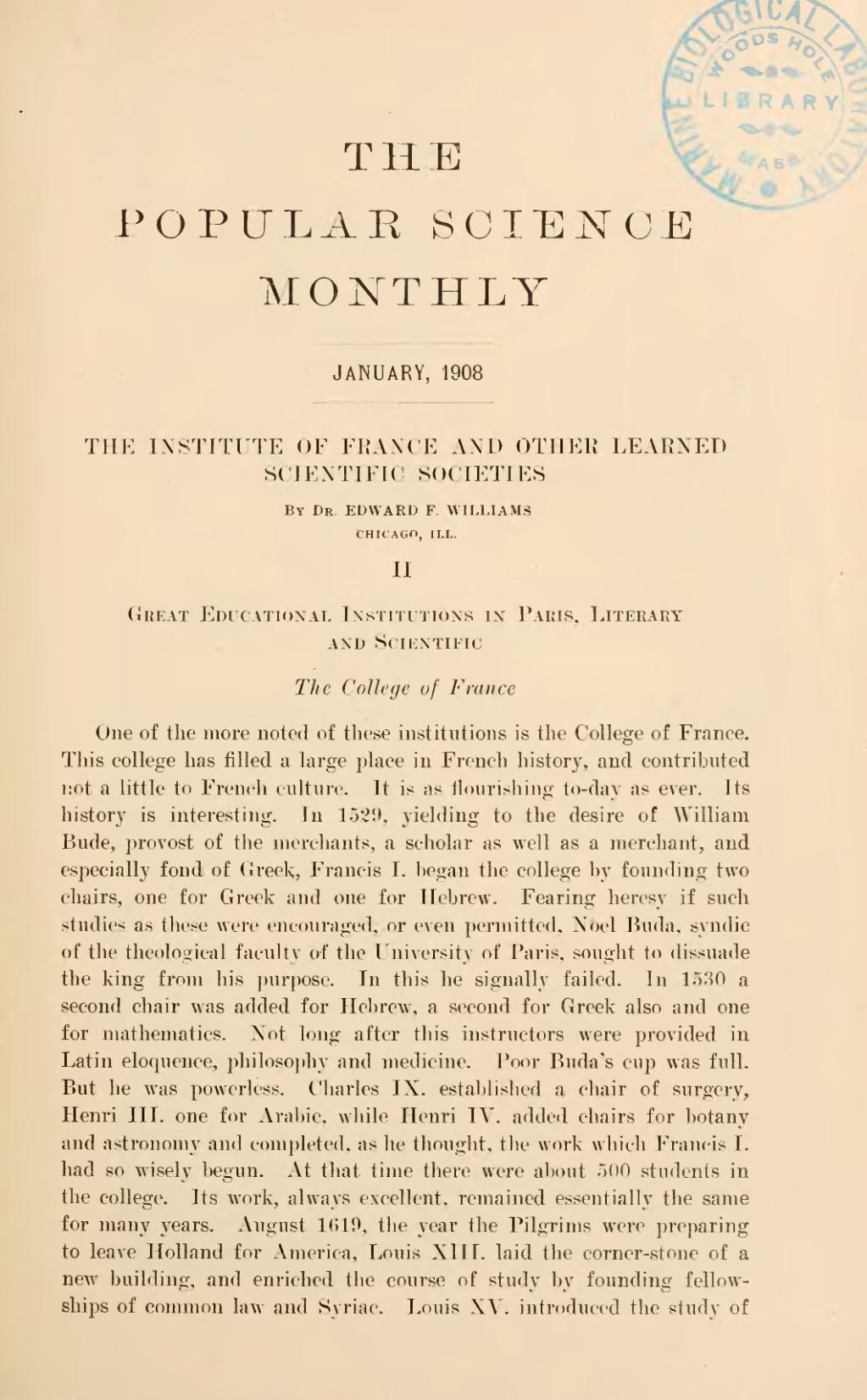THE
POPULAR SCIENCE
MONTHLY
JANUARY, 1908
| THE INSTITUTE OF FRANCE AND OTHER LEARNED SCIENTIFIC SOCIETIES |
By Dr. EDWARD F. WILLIAMS
CHICAGO, ILL.
II
Great Educational Institutions in Paris, Literary and Scientific
The College of France
One of the more noted of these institutions is the College of France. This college has filled a large place in French history, and contributed not a little to French culture. It is as flourishing to-day as ever. Its history is interesting. In 1529, yielding to the desire of William Bude, provost of the merchants, a scholar as well as a merchant, and especially fond of Greek, Francis I. began the college by founding two chairs, one for Greek and one for Hebrew. Fearing heresy if such studies as these were encouraged, or even permitted, Noel Buda, syndic of the theological faculty of the University of Paris, sought to dissuade the king from his purpose. In this he signally failed. In 1530 a second chair was added for Hebrew, a second for Greek also and one for mathematics. Not long after this instructors were provided in Latin eloquence, philosophy and medicine. Poor Buda's cup was full. But he was powerless. Charles IX. established a chair of surgery, Henri III. one for Arabic, while Henri IV. added chairs for botany and astronomy and completed, as he thought, the work which Francis I. had so wisely begun. At that time there were about 500 students in the college. Its work, always excellent, remained essentially the same for many years. August 1619, the year the Pilgrims were preparing to leave Holland for America, Louis XIII. laid the corner-stone of a new building, and enriched the course of study by founding fellowships of common law and Syriac. Louis XV. introduced the study of
